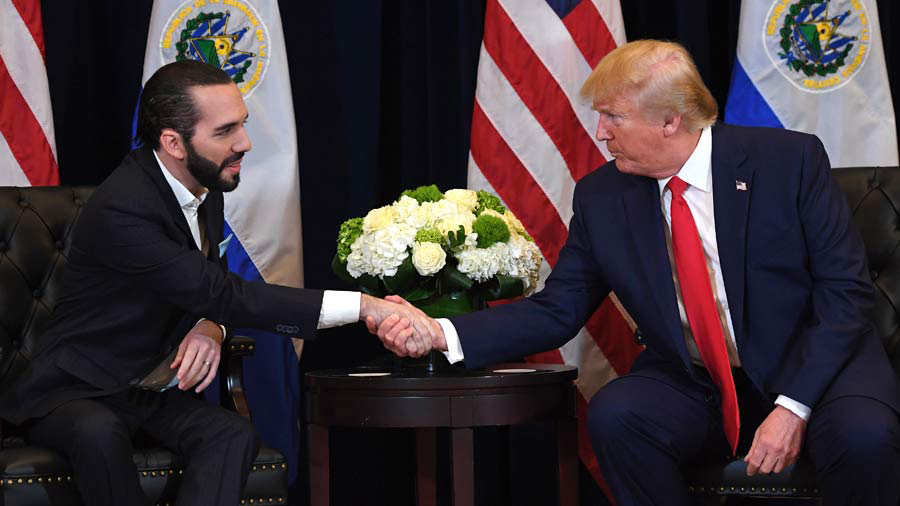
According to an Associated Press report, the government of El Salvador continues to pay for lobbying services in the United States, even though the president said he had suspended them.
In August 2020, an Associated Press report revealed that the government of El Salvador had hired lobbyist Robert Stryk and his company Sonoran Policy Group to bolster President Nayib Bukele’s image in the United States. The agreement in question was signed by Peter Dumas, director of the State Intelligence Agency (OIE) and cost $ 450,000 in public funds.
However, at the time, the Presidency stated that the contract had not been approved by Bukele, so it was canceled.
Last Saturday, the Associated Press revealed that Stryk has upheld the contract with the Salvadoran government, contradicting Nayib Bukele’s government version that confirmed the lobbying services agreement had been canceled.
Keep reading: Bukele hires for $ 780,000 a company founded three weeks ago to improve its image in the United States
According to reports sent to the US government, the Sonoran Policy Group has kept its job by calling congressmen and collecting $ 214,000 in payments from the OIE so far, even though Bukele said this service no longer existed.
Sonoran reported to the United States Department of Justice that it had arranged phone calls with six legislative advisers from the Republican side, in which Dumas participated in his capacity as a Salvadoran official. They included interviews with aides to Congressmen Kevin McCarthy, a Republican minority leader in the Congressional House of Representatives, and Rick Crawford, who sits on the Intelligence Committee.
In fact, a day after one of those calls, Crawford tweeted his support for “friends and partners” in the fight against corruption like Bukele.
See: Bukele, Trump’s Faithful Ally, Hires Bill Clinton’s Sphere Advisor
These contracts were signed at a time when the authoritarian nature of Nayib Bukele’s government was becoming increasingly well known, leading to influential members of Congress from both parties in the United States signing letters expressing his attacks on the press, the opposition and the dismantling. of it. .
Six months before the contract, Bukele was in command of an armed takeover of the Legislative Assembly in February. Also in February, he told a meeting of IDB governors that if foreign attendees were to live in El Salvador, they would also want to burn the country’s politicians alive. In April, it contested the Constitutional Chamber’s rulings and continued to order unlawful arrests of Salvadorans who allegedly violated quarantine, preferring the military response to the early-stage medical response of the pandemic. In August he joked that if he were a dictator, he would have already had the magistrates of the Constitutional Chamber shot.
These and many more events have brought him harsh criticism for weakening democracy and preparing the country for authoritarianism with obvious abuse of power and serious evidence of corruption. To avoid that image damage, instead of deviating from that criticism, he chose to hire lobbyists in Washington to wipe his face for his most important partner, the United States, which at the time was indifferent to his abuse.
As of January 20, however, a more critical role for the White House seems to be looming in the Biden administration in light of Bukele’s visible abuse of power and his systematic intimidation of opponents.